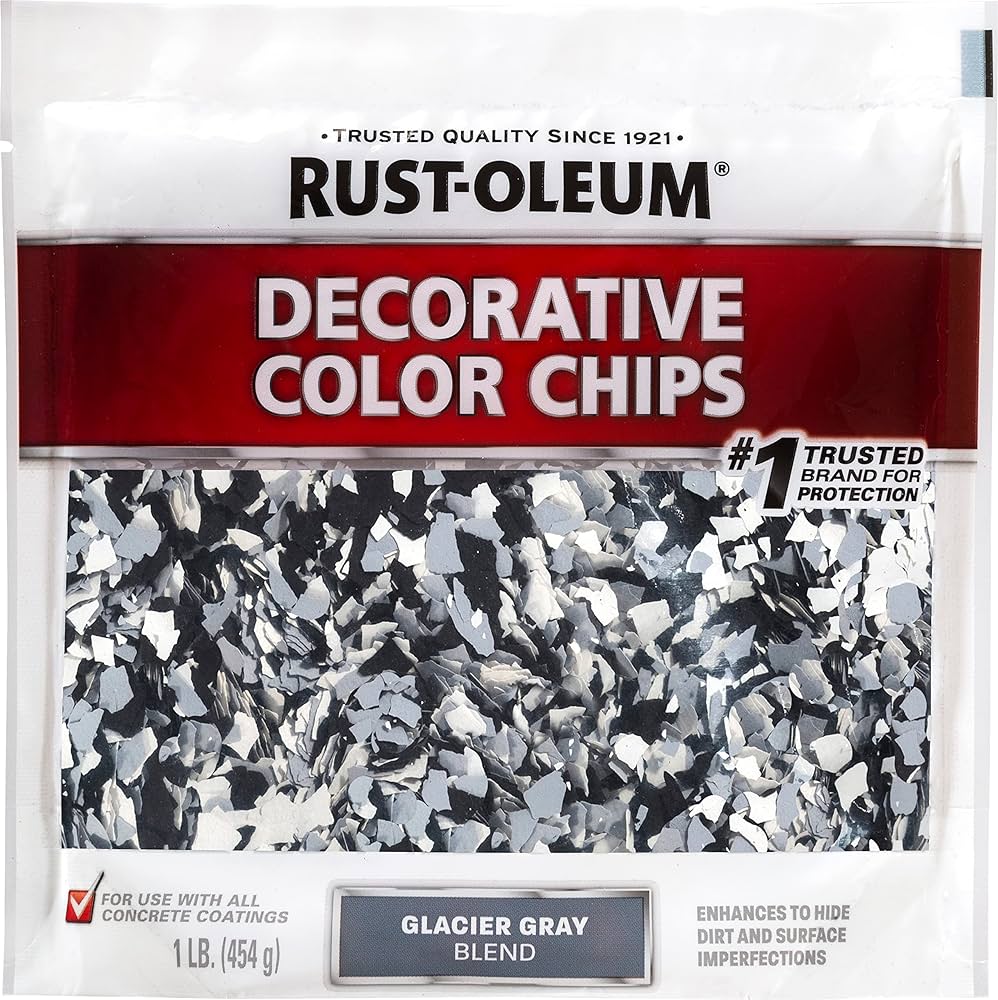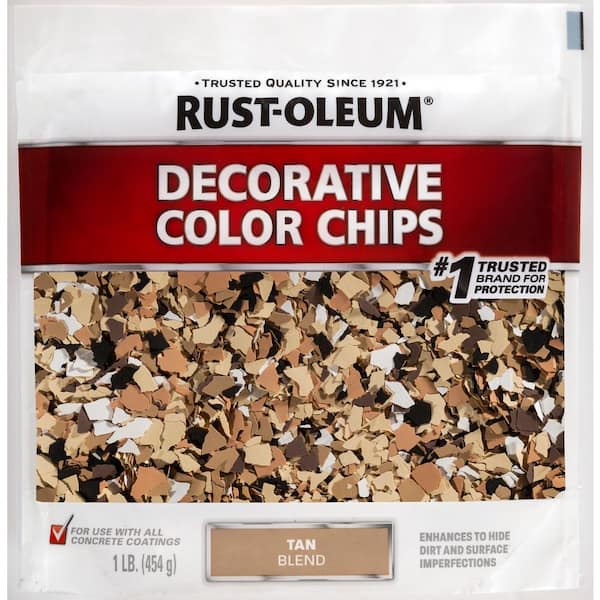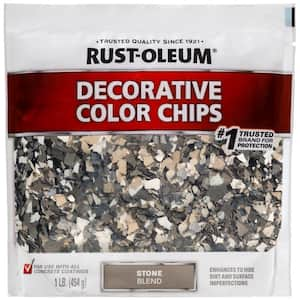Introduction to Rust-Oleum Decorative Chips
When it comes to enhancing the aesthetic appeal of your floors, Rust-Oleum decorative chips offer an innovative and practical solution. As someone who has personally experienced their transformative power, I can attest to their versatility and functionality. In this guide, we’ll dive deep into everything you need to know about Rust-Oleum decorative chips, from application techniques to maintenance tips.
What Are Rust-Oleum Decorative Chips?
Rust-Oleum decorative chips are colorful, textured aggregates designed to enhance resinous flooring systems. Available in various colors and sizes, these chips can be mixed into epoxy or urethane coatings to create a unique and durable surface finish.
Benefits of Using Rust-Oleum Decorative Chips
- Enhanced aesthetic appeal
- Durability and resistance to wear
- Easy application and maintenance
- Slip resistance
- Variety of colors to match any decor
Types of Rust-Oleum Decorative Chips
1. Vinyl Chips
Vinyl chips are known for their bright colors and durability. They are ideal for residential and commercial settings.
2. Polymeric Chips
These chips provide a more textured finish and are often used in high-traffic areas due to their durability.
3. Color Flakes
Color flakes offer a speckled appearance that can mimic natural stone and create an upscale aesthetic.
How to Apply Rust-Oleum Decorative Chips
Step-by-Step Application Guide
- Preparation: Ensure the surface is clean, dry, and free of any contaminants.
- Primer: Apply a primer suited for the surface type.
- Mix the Epoxy: Follow the manufacturer’s instructions to mix the epoxy coating properly.
- Application: Use a roller to apply the coating evenly.
- Sprinkle the Chips: While the coating is wet, sprinkle the decorative chips evenly.
- Seal the Surface: Once the epoxy is cured, apply a clear topcoat to seal and protect the chips.

Comparison of Rust-Oleum Decorative Chips with Other Flooring Options
| Feature | Rust-Oleum Decorative Chips | Traditional Tile | Carpet |
|---|---|---|---|
| Durability | High – resistant to scratches and stains | Moderate – can chip or crack | Low – can easily stain or wear |
| Maintenance | Easy – simple cleaning | Moderate – requires regular grouting | High – frequent cleaning needed |
| Aesthetic Variety | High – multiple colors and styles | Varies – limited by tile designs | Moderate – limited patterns and colors |
| Cost | Moderate – value for aesthetic | High – installation can be expensive | Low – initial cost may be low but replacement is frequent |
Pros and Cons of Rust-Oleum Decorative Chips
Pros
- Customizable appearance to fit your style
- Excellent adhesion properties
- Enhances slip resistance
- Suitable for both indoor and outdoor use
Cons
- Can require significant preparation time
- Initial costs can add up with additional supplies
- If not applied correctly, may peel or discolor

Maintenance Tips for Rust-Oleum Decorative Chips
Maintaining your Rust-Oleum decorative chips is straightforward. Here are some tips to keep your floor looking beautiful:
- Regularly sweep or vacuum to remove dirt and debris.
- Use a mild detergent and water for cleaning; avoid harsh chemicals.
- Consider resealing every few years to maintain the finish.
Common Questions About Rust-Oleum Decorative Chips
1. How long do Rust-Oleum decorative chips last?
With proper application and maintenance, Rust-Oleum decorative chips can last for many years, making them a worthwhile investment.
2. Can I use Rust-Oleum decorative chips outdoors?
Yes, these chips are suitable for outdoor use, providing a colorful and durable surface for patios and garages.
3. Do I need special tools to apply decorative chips?
No special tools are required beyond standard painting and flooring equipment. However, a roller and a sprayer can make application easier.

Personal Experience: My Journey with Rust-Oleum Decorative Chips
After my own experience with Rust-Oleum decorative chips, I can confidently say that the results were truly remarkable. I transformed my dull garage into an inviting workspace. The application process took a bit of effort, especially during the prep phase, but the end result was absolutely worth it. The chips not only added a vibrant touch but also increased the functionality of my workspace.